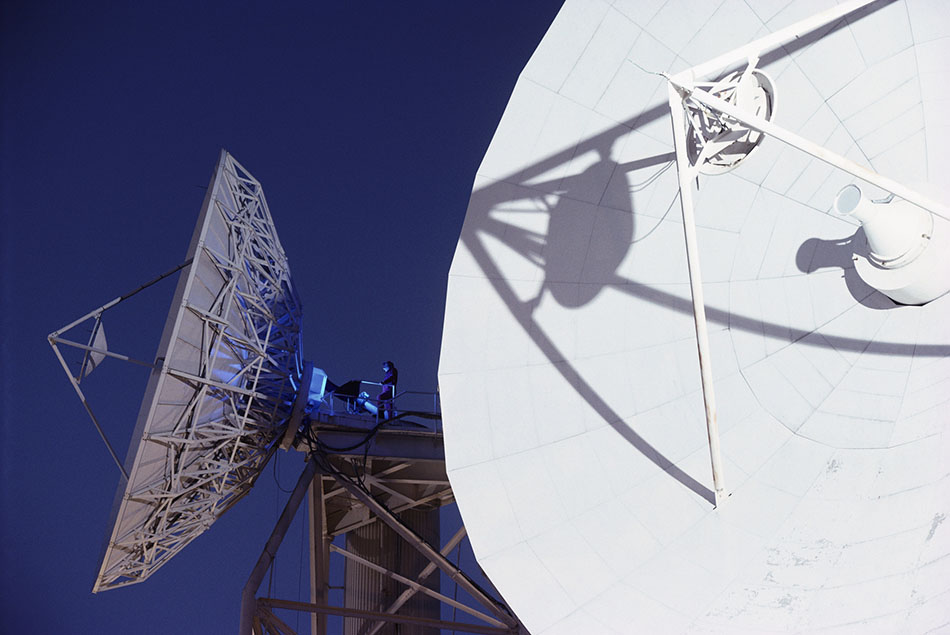Airlines Try To Block C-Band Rollout
File emergency stay petition

The smarter way to stay on top of the streaming and OTT industry. Sign up below.
You are now subscribed
Your newsletter sign-up was successful
The airline industry has filed an emergency petition at the FCC asking that the commission stop implementation of rules for the rollout of 5G in the band and suggesting not to do so could cost the airline industry a billion dollars and delay shipments of COVID-19 vaccines and tests.
It is just the latest battle line in the air war between the FCC and aviation over what the latter said is the potential for dangerous interference to critical aviation systems like altimeters.
The petition was filed Thursday (December 30) by Airlines for America (A4A), representing the major passenger and cargo airlines in the U.S. (as well as Air Canada).
Already experiencing COVID-19-related cancellations, the airlines painted a doomsday scenario if 5G rolls out in the band as planned January 5. (AT&T and Verizon, the big winners in the C-band auction, agreed to postpone that rollout from December 5, 2021).
There are several key factors to granting a stay, one of which is irreparable harm. A4A said that would clearly be the case.
A4A said that if wireless proceeds as planned in the band, their airlines "confront the impending need to (a) reroute and/or cancel thousands of airline flights, (b) dislocate millions of passengers and airline crews and (c) delay delivery of time sensitive, critical shipments (including COVID-19 vaccines and tests)."
The economic loss would likely top $1 billion, they told the FCC, "because of their inability to rely on the proper operation of aircraft altimeters due to the interference in their operation caused by higher-powered 3.7 GHz [C-band] licensees."
The smarter way to stay on top of the streaming and OTT industry. Sign up below.
They want the FCC to put a stop to wireless service in "certain designated airport locations" until the FCC has ruled on a petition for reconsideration--which they filed back in May 2020--and the FCC and FAA have resolved safety issues.
They say the FCC has not provided a "reasoned analysis" for rejecting evidence submitted by aviation interests of harmful interference.
The FCC signaled two weeks ago that it is considering putting new restrictions on wireless use of C-band spectrum, including a nationwide power reduction.
Also: FCC Signals Possible C-Band Power Down
The Federal Communications Commission freed up C-band spectrum for 5G wireless use, auctioning it for a record $81.1 billion. Its engineers said that wireless and incumbent aviation systems could share the band without interference, but the airline industry and the Federal Aviation Administration begged to differ.
FCC chair Jessica Rosenworcel told Congress that information the FCC received after adopting the framework for C-band spectrum sharing suggested that the presence of C-band operations could cause some erroneous altimeter readings.
Given that new info, she said, the FCC is taking the report "very seriously," serious enough to open a proceeding to review the findings and whether any changes need to be made to the C-band rules.
A4A suggested it needs to take it seriously. "[V]irtually the entirety of the American public will be significantly and adversely affected if the January 5th date is not stayed," it said.
"Late in the day on the eve of the three day holiday weekend, the airline industry has filed an 'emergency' petition demanding that the FCC halt implementation of new rules that pave the way for wider availability of new 5G services," said Andrew Jay Schwartzman, senior counselor at the Benton Institute for Broadband & Society, which also says the spectrum should be freed up for broadband. "Its demand that the FCC act over the weekend - by January 3 - to grant the petition would be outrageous under any circumstances, but the fact that the underlying decision was issued almost two years ago makes it plain that the airline industry’s sneak attack is grounded in politics, not law.
"As the U.S. Court of Appeals reiterated in a similar case just a few days ago, the FCC is entitled to a maximum degree of deference in technological decisions such as this one. Indeed, not only has the FCC carefully weighed all of the airlines’ claims, but it has worked with AT&T and Verizon to make absolutely certain that implementation will be entirely consistent with public safety.
"The FCC should reject this new ploy out of hand. And, if the airlines make good on their threat to take this demand to court, the court should also dismiss it immediately." ■
Contributing editor John Eggerton has been an editor and/or writer on media regulation, legislation and policy for over four decades, including covering the FCC, FTC, Congress, the major media trade associations, and the federal courts. In addition to Multichannel News and Broadcasting + Cable, his work has appeared in Radio World, TV Technology, TV Fax, This Week in Consumer Electronics, Variety and the Encyclopedia Britannica.

